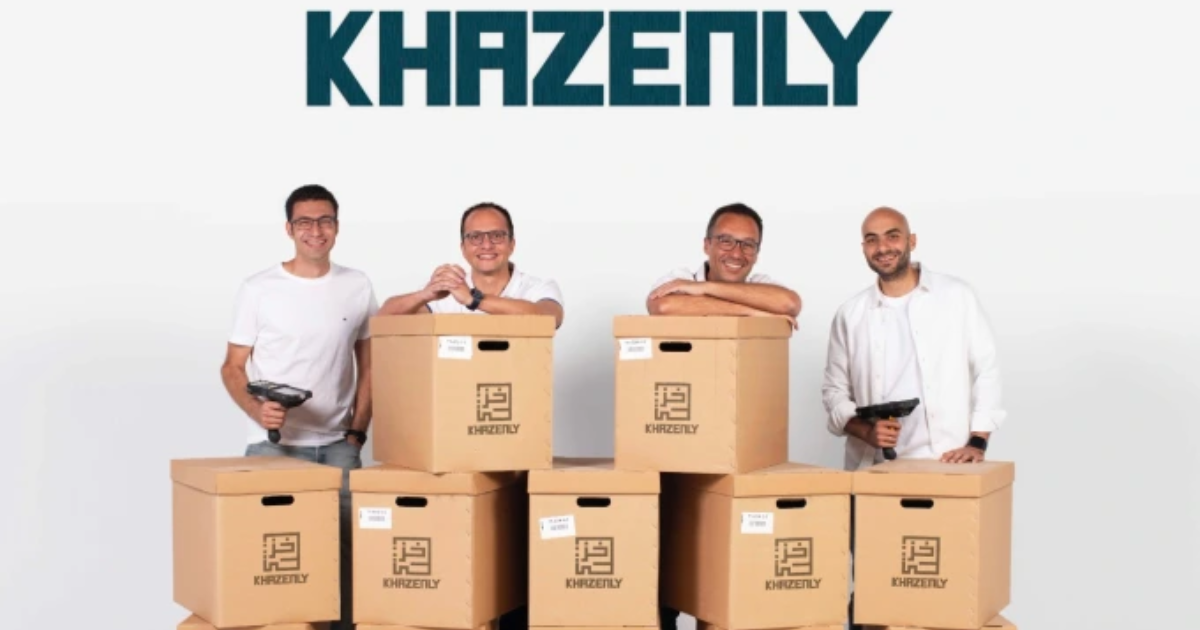Egypt's On-Demand Digital Warehousing and Fulfillment Platform, Khazenly Secures $2.5M Seed Funding

Khazenly, Egypt’s on-demand digital warehousing and fulfillment platform that offers an omnichannel solution to assist merchants in digitizing their businesses has received $2.5 million in seed funding.
The startup, which bootstrapped its way to a soft launch in the middle of last year, has now received its first institutional capital from Arzan Venture Capital and Shorooq Partners, with Camel Ventures, Averroes Ventures, and a couple of angels participating.
According to Mohamed Younes, who co-founded Khazenly with Osama Aljammali, Mohamed Montasser, and Ahmed Dewidar, the startup solves fulfillment issues for small and medium-sized merchants who focus on business and consumers. He claims that these merchants lack the resources to rent a large warehouse and use manual processes to carry out operations. As a result, Khazenly enables merchants and social commerce retailers to digitally optimize their fulfillment processes when selling online (B2C), through retail stores (B2B), marketplaces, cross-border, or a combination of these channels.
“There is no player in Egypt who can match our digital experience in managing both B2C and B2B.” Though we solve both aspects separately, we are alleviating a major market pain by automating both,” Younes said.
Khazenly’s use of AI and big data can be traced back to the CEO’s background in that field after working for several years at IBM and Huawei, a process that allows it to advise merchants on what products to the stock based on location and demand.
In addition to warehousing and AI capabilities, the startup provides cross-docking, transportation, delivery, and cash collection services.
“Our clients use our digital platform to carry out all of these seamless experiences.” In addition, beyond the current fulfillment, we engage in a variety of activities with our clients, including marketing and other value-added services,” the CEO explained.

Khazenly uses an asset-light model, which means it does not own its warehouses or delivery vehicles. Rather, it partners with over 100 last-mile companies to fulfill delivery for its merchants and charges varying monthly subscription fees based on their warehouse space allocation and order projection.
“After three weeks of launch, we discovered that some clients are unable to calculate how much space their restock will consume in the warehouse,” the CEO explained. “So we created a calculator in which the client enters very nice scalar quantities and it automatically calculates how much warehouse space they will consume, estimates the number of orders, and outputs a subscription range.”
The startup claims to assist merchants in over 16,000 self-service activities and has an eight-figure gross merchandise value (GMV) processed.
Globally, there has been a greater emphasis on developing more resilient e-commerce supply chains. According to Laith Zraikat, an Arzan partner, Arzan’s support for Khazenly demonstrates that the “logistics tech and fulfillment sector is still open to disruption.” According to Tamer Azer, partner at Shorooq, Khazenly’s products, and services have the potential to propel the fulfillment industry in Egypt and the wider region forward.
Younis stated that the investment proceeds would be used to quadruple the startup’s facilities as it pursues a strategy of developing more AI and data-driven products and expanding geographically.
“We are very excited and proud of what we did the last few months. And I believe in the coming days we will do even more strategic and key milestones to let our merchants grow even more,” he said.
